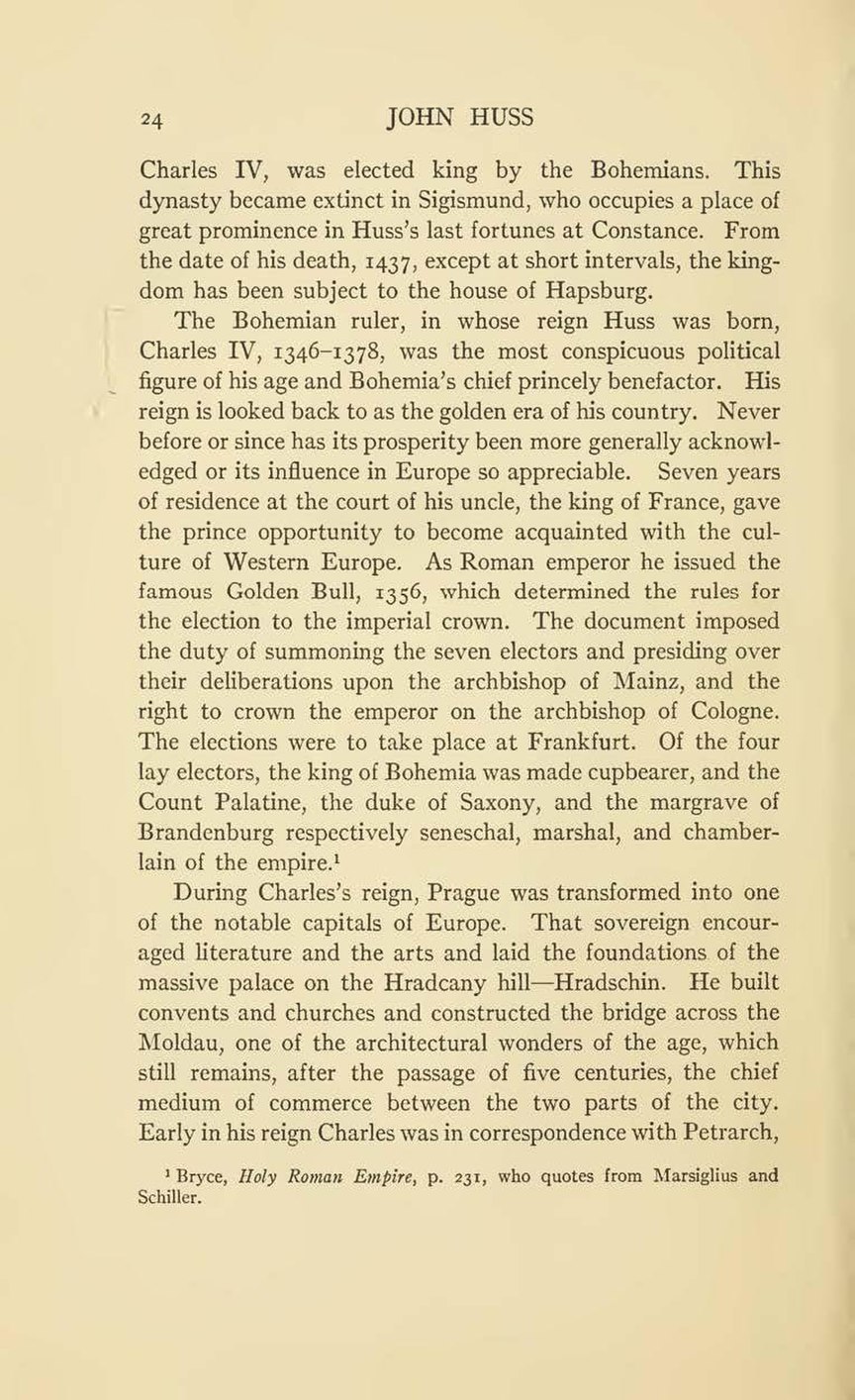Charles IV, was elected king by the Bohemians. This dynasty became extinct in Sigismund, who occupies a place of great prominence in Huss’s last fortunes at Constance. From the date of his death, 1437, except at short intervals, the kingdom has been subject to the house of Hapsburg.
The Bohemian ruler, in whose reign Huss was born, Charles IV, 1346–1378, was the most conspicuous political figure of his age and Bohemia’s chief princely benefactor. His reign is looked back to as the golden era of his country. Never before or since has its prosperity been more generally acknowledged or its influence in Europe so appreciable. Seven years of residence at the court of his uncle, the king of France, gave the prince opportunity to become acquainted with the culture of Western Europe. As Roman emperor he issued the famous Golden Bull, 1356, which determined the rules for the election to the imperial crown. The document imposed the duty of summoning the seven electors and presiding over their deliberations upon the archbishop of Mainz, and the right to crown the emperor on the archbishop of Cologne. The elections were to take place at Frankfurt. Of the four lay electors, the king of Bohemia was made cupbearer, and the Count Palatine, the duke of Saxony, and the margrave of Brandenburg respectively seneschal, marshal, and chamberlain of the empire.[1]
During Charles’s reign, Prague was transformed into one of the notable capitals of Europe. That sovereign encouraged literature and the arts and laid the foundations of the massive palace on the Hradcany hill—Hradschin. He built convents and churches and constructed the bridge across the Moldau, one of the architectural wonders of the age, which still remains, after the passage of five centuries, the chief medium of commerce between the two parts of the city. Early in his reign Charles was in correspondence with Petrarch,
